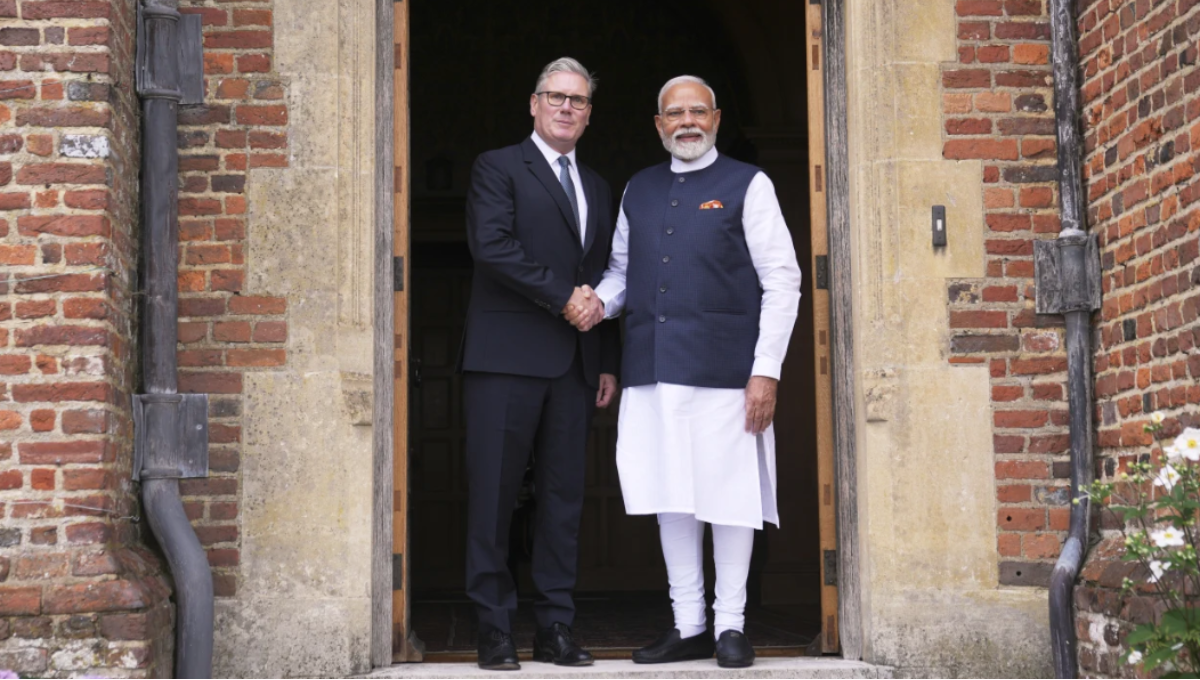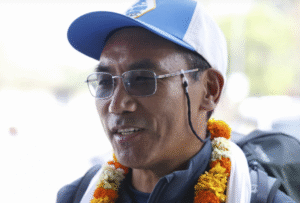British Prime Minister Keir Starmer and Indian Prime Minister Narendra Modi finalized a long-negotiated trade deal on Thursday that will significantly reduce tariffs on a wide range of goods, including Scotch whisky and English gin going to India, and Indian food, spices, and textiles entering the UK.
The agreement was officially signed at Chequers, the British Prime Minister’s country residence, by the countries’ respective trade ministers, Jonathan Reynolds for the UK and Piyush Goyal for India.
Starmer hailed the deal as “the biggest and most economically significant trade agreement” Britain has secured since its departure from the European Union in 2020. Modi called it “a historic day” for the two nations’ relationship.
Alongside the trade pact, the UK and India announced nearly £6 billion ($8 billion) in new trade and investment deals across sectors such as artificial intelligence, aerospace, and dairy. Both countries also committed to deeper cooperation on key global issues including defense, migration, climate change, and healthcare.
This landmark agreement, involving the world’s fifth- and sixth-largest economies, was first announced in May following more than three years of drawn-out negotiations. The talks had previously stalled under the former Conservative government in Britain and resumed after elections in both countries in 2024, with Modi re-elected in India and Starmer’s Labour Party coming to power in the UK.
Although signed, the agreement still requires approval by the UK Parliament.
The UK government highlighted that the deal will bring India’s average tariff on British goods down from 15% to 3%. Tariffs on whisky and gin, which currently stand at 150%, will be halved immediately and will drop further to 40% by the tenth year of the agreement. Automotive tariffs, which can exceed 100%, will also be slashed to 10% under certain quotas.
Estimates from the UK suggest the deal will boost bilateral trade by £25.5 billion ($35 billion) annually by 2040 and could contribute nearly £5 billion ($6.8 billion) a year to the UK economy.
India’s Trade Ministry stated that under the new agreement, 99% of Indian exports—including clothing, footwear, and food products—will be exempt from UK import duties.
Formal negotiations began in 2022, with then-Prime Minister Boris Johnson setting an ambitious goal of finalizing the agreement by Diwali that year. Despite 13 rounds of talks, no deal was reached until negotiations were revived in 2024 after both nations’ elections.
The agreement also reflects the deep cultural and historical ties between the UK and India. Nearly 2 million UK residents trace their heritage to India, a country once under British colonial rule until gaining independence in 1947.
Starmer emphasized the long-standing bonds between the two countries, saying, “We share history, family, and culture. This deal marks a step forward in building a modern, forward-looking partnership.”
With England and India currently competing in a cricket test series, Modi used a sports metaphor to highlight the cooperative spirit of the deal: “There may be a swing and a miss at times, but we always play with a straight bat. We’re committed to building a high-scoring, solid partnership.”
Also Read:
Japan Posts Trade Deficit as Trump’s Tariffs Weigh on Exports
US Stocks Edge Toward Another Record After Trade Deal with Japan













